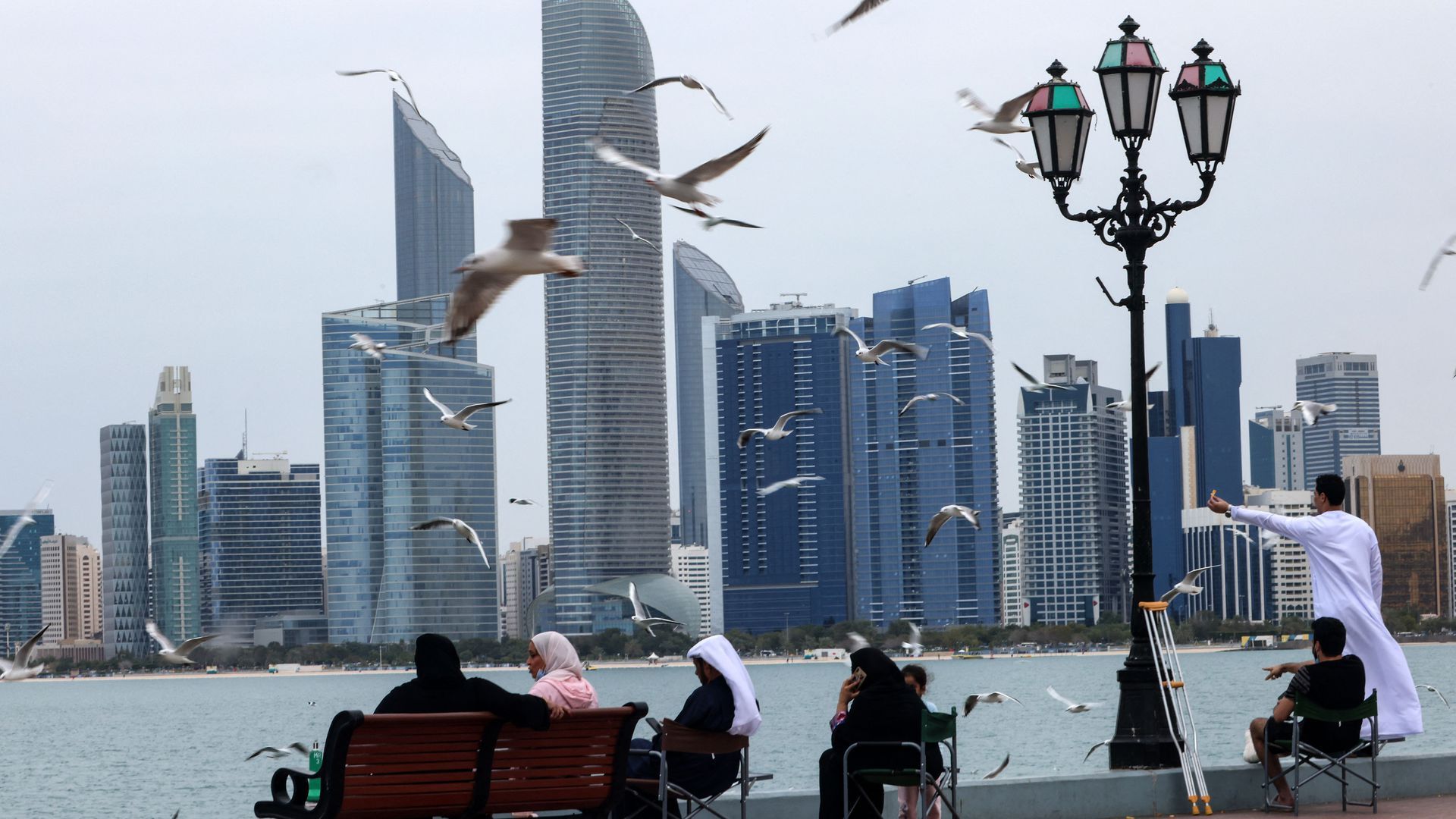UAE plots path forward after Houthi attacks
Add Axios as your preferred source to
see more of our stories on Google.

A view of Abu Dhabi this week. Photo: Giuseppe Cacace/AFP via Getty
A little over a week after Abu Dhabi suffered its first deadly attack by Yemen's Houthi rebels, the UAE is using a combination of military and diplomatic measures to pressure the Houthis to come to the negotiating table.
Driving the news: On Monday, the UAE military intercepted two ballistic missiles fired at Abu Dhabi by Houthi rebels from Yemen. No casualties were reported, but three people were killed in the attack one week earlier.
- The U.S. military's Central Command helped foil Monday's attack, which targeted an air base that hosts nearly 2,000 U.S. service members. The UAE Ministry of Defense later announced Emirati fighter jets had destroyed the missile launcher used to fire the rockets.
- Egyptian President Abdel Fattah al-Sisi arrived in Abu Dhabi on Wednesday to show his support after the attacks.
- Saudi-led airstrikes last Friday killed dozens of people in Yemen and knocked out the internet. The Houthis have also targeted Saudi Arabia.
State of play: Despite the lingering question of whether such attacks will become a regular worry, daily life in the UAE remains unaffected.
- Children in Abu Dhabi went back to school as scheduled this week after a period of distance learning due to COVID-19 safety measures.
- Large-scale international business events and conferences have carried on. The airports are unaffected. Oil prices and local stock markets seem to have shrugged off the immediate worry.
- One impact, however, is that flights of all drones and light sports aircraft have been banned without special permission.
What they're saying: The UAE government said it would defend itself "proportionately" against the Houthi attacks.
- Emirati diplomatic adviser Anwar Gargash told U.S. special envoy for Yemen Tim Lenderking last week that the Houthis were unwilling to work toward a political solution to the war and must therefore face additional international pressure.
- The UAE has pushed for the U.S. to redesignate the Iran-backed Houthis as a terror group, as Axios reported last week.
- President Biden promised to withdraw support for the Saudi-led coalition upon taking office, but his administration has been sending signals of support to the UAE after the attacks.
The big picture: After Houthi rebels took the Yemeni capital in 2014, a Saudi-led coalition — which includes the Emiratis and was backed by the U.S. — intervened and the conflict spiraled into a civil war and perhaps the world's worst humanitarian crisis.
- The UAE had been seeking to deescalate the conflict, including by reaching out to Iran, which backs the Houthis. Emirati officials say they will continue to push for a ceasefire in Yemen and then a political solution.
- However, the attacks could dial up regional tensions with Iran, which is believed to have supplied most of the Houthis' advanced weaponry.
- The renewed tensions could make some in the region more likely to speak out against a new nuclear deal with Iran, assuming it doesn't address the proliferation of ballistic missiles.
Worth noting: Israeli President Isaac Herzog will arrive in Abu Dhabi on Sunday. This will be the first-ever public visit of an Israeli president in the UAE.
